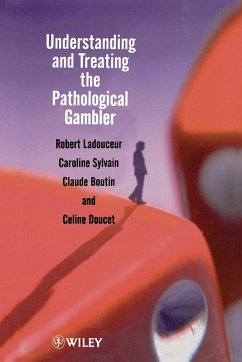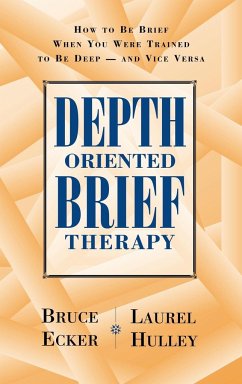
The Tactics of Change
Doing Therapy Briefly
Versandkostenfrei!
Versandfertig in über 4 Wochen
71,99 €
inkl. MwSt.

PAYBACK Punkte
36 °P sammeln!
This book is a comprehensive and detailed manual on treating a wid range of clinical problems briefly and effectively. The clinical problems dealt with include, among others, anxiety, depression, marital and family conflict, psychosomatic complaints, schizophrenia, sexual problems, and drug and alcohol abuse. The authors' tactics for brining about change reflect an interest in making treatment efficient and measuring it in terms of weeks rather than months. The authors, pioneers in the field of brief strategic therapy, build on sixteen years and refining their approach at the Brief Therapy Cen...
This book is a comprehensive and detailed manual on treating a wid range of clinical problems briefly and effectively. The clinical problems dealt with include, among others, anxiety, depression, marital and family conflict, psychosomatic complaints, schizophrenia, sexual problems, and drug and alcohol abuse. The authors' tactics for brining about change reflect an interest in making treatment efficient and measuring it in terms of weeks rather than months. The authors, pioneers in the field of brief strategic therapy, build on sixteen years and refining their approach at the Brief Therapy Center of the Mental Research Institute, Palo Alto. The book opens with a concise explanation of the authors' conception of human problems-how they begin, why they persist, and how they can be resolved quickly. It then goes on to discuss all the basic elements of treatment: maintaining control, setting the stage for treatment, conducting the first interview, assessing the patient's position or point of view, planning overall treatment strategy, using specific intervention, and terminating treatment. In a long and detailed section, the authors examine situation that frequently arise during the course of treatment and provide extensive examples of what therapists can do, say, suggest, and imply to initiate beneficial change. Case studies with commentary explaining the reasons for the therapist's actions, illustrate successful uses of techniques and further clarify the approach. The book concludes with a summary of the basic principles of brief therapy and their potential application to many kinds of human problems.












